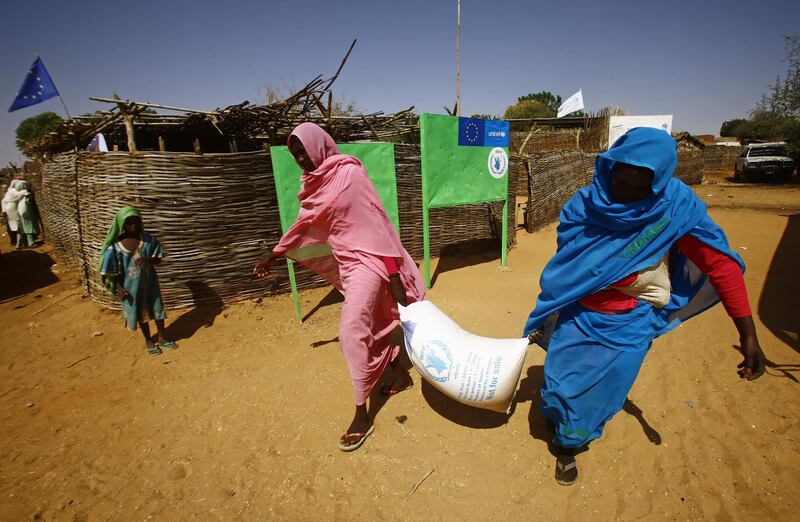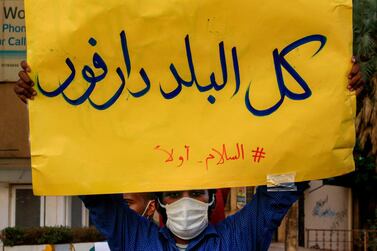The combined death toll from recent violence in Sudan's tense Darfur region has risen above 200, after medics revised the toll from one set of clashes upward by more than 50.
The Central Committee of Sudan Doctors said the death toll from clashes in West Darfur's state capital El Geneina "stands at 159", up from an earlier reported figure of 100, while the number of wounded reached 210.
"Residents and volunteers from the Sudanese Red Crescent are undertaking great efforts to find people who went missing" during the violence, which erupted on Saturday, the committee said.
On Tuesday, armed men opened fire overnight, trying to storm the residence of a provincial governor in Darfur region but were repelled by guards, officials said.
There were no injuries or damage in the attempted attack on West Darfur Governor Mohammed Abdalla Al Douma’s residence in the provincial capital of Genena, but it underscored the heightened tensions in the region.
Separate clashes on Monday in South Darfur between members of the Fallata ethnic group and the Arab Rizeigat tribe killed at least 55 people and wounded 37.
The updated figure from West Darfur takes the combined death toll to at least 214, up from 155.
The fighting in the two states came just over two weeks after a long-running peacekeeping mission undertaken by the United Nations and African Union ended operations in Darfur.
The end of peacekeeping patrols sparked protests by fearful Darfuris in late December.
The Darfur region, in western Sudan, was the site of a deadly conflict that erupted in 2003 pitting ethnic minority rebels against Arab nomads backed by the Khartoum government of the time under Omar Al Bashir.
The conflict – which killed about 300,000 people and displaced 2.5 million – subsided over the years but inter-ethnic clashes occasionally erupt.
Sudanese authorities in the country's capital, Khartoum, and other states sent troops to the affected areas in an attempt to contain the latest violence.
A transitional government, installed after the April 2019 ousting of Al Bashir, has gone to significant lengths to stabilise the country's far-flung regions that were torn by conflict under his autocratic rule.
In October, the government signed a peace agreement with rebel groups that observers hoped would help end years of conflict, including in Darfur.
This week's violence appeared not to involve any signatories to the deal.
Earlier on Wednesday, diplomats said the United Nations Security Council will convene on Thursday to discuss the fighting in Darfur.






